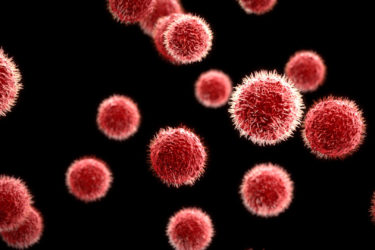Results for: conflicts of interest
NCCAM Criticism from a Not-Quite-Opponent
The demographic of SBM readers are likely to remember the early Miller Lite beer television commercials where sports personalities debated as to whether the beverage “tastes great” or was “less filling.” In one classic version, New York Mets’ Marv Throneberry breaks the shouting match to level his decision: “I feel strongly both ways.” My colleagues at Science-Based Medicine have generally been opposed...
Vaccination mandate exemptions: gimme that ol’ time philosophy
Each of the 50 states and the District of Columbia require vaccination against certain diseases as a prerequisite to public and private school attendance, most commonly polio, mumps, measles, diphtheria, rubella, chicken pox, Heamophilus influenza type b, pertussis, tetanus, pneumococcal disease and hepatitis B. Unfortunately, mandatory vaccination for home-schooled children is rare. (1) All states provide medical exemptions to vaccination mandates for...
Acupuncturist’s Unconvincing Attempt at Damage Control
Acupuncture has been in the news recently. A former President of South Korea had to undergo major surgery to remove an acupuncture needle that had somehow lodged in his lung. A recent study in Pain compiled a list of 95 published reports of serious complications of acupuncture including 5 deaths. Meanwhile, acupuncturists continue to insist that their procedures are “safe.” Edzard Ernst et...
Placebo Prescriptions
Whether it’s acupuncture, homeopathy or the latest supplement, placebo effects can be difficult to distinguish from real effects. Today’s post sets aside the challenge of identifying placebo effects and look at how placebos are used in routine medical practice. I’ve been a pharmacist for almost 20 years, and have never seen a placebo in practice, where the patient was actively deceived by...
Clinical equipoise versus scientific rigor in cancer clinical trials
A critical aspect of both evidence-based medicine (EBM) and science-based medicine (SBM) is the randomized clinical trial. Ideally, particularly for conditions with a large subjective component in symptomatology, the trial should be randomized, double-blind, and placebo-controlled. As Kimball Atwood pointed out just last week, in EBM, scientific prior probability tends to be discounted while in SBM it is not, particularly for therapies...

Germ theory denial: A major strain in “alt-med” thought
As hard as it is for most physicians today to believe it, germ theory denial is a major strain of belief underlying disturbingly large swaths of alternative medicine, as well as antivaccine beliefs. Yes, infectious disease is more complex than the simplistic version of germ theory understood by the public, but the complexities do not invalidate germ theory.
Risibility. The Superior Therapeutic Intervention?
Dad always thought laughter was the best medicine, which I guess is why several of us died of tuberculosis. ~Jack Handey, “Deep Thoughts“ We have a saying in medicine that you can’t kill a jerk. Not that we try to kill anyone, but that particularly unpleasant individuals, rife with psychopathology, survive whatever illness comes their way. The corollary is that particularly nice...
Special Challenges of Science-Based Veterinary Medicine
On this site there have been several thoughtful posts (e.g. by Dr. Atwood and by Dr. Novella), and subsequently much heated commentary, on the distinction between Evidence-Based Medicine (EBM) and Science-Based Medicine (SBM). I agree wholeheartedly with the position that the two are not mutually exclusive, and that SBM is essentially EBM as it should be practiced, with a comprehensive consideration of...
Certainty versus knowledge in medicine
I don’t want knowledge. I want certainty! — David Bowie, from Law (Earthlings on Fire) If there’s a trait among humans that seems universal, it appears to be an unquenchable thirst for certainty. It is likely to be a major force that drives people into the arms of religion, even radical religions that have clearly irrational views, such as the idea that...
How do religious-based hospitals affect physician behavior?
Science-based medicine is, among other things, a tool. Science helps us sequester our biases so that we may better understand reality. Of course, there is no way to avoid being human; our biases and our intuition still betray us, and when they do, we use other tools. Ethics help us think through situations using an explicitly-stated set of values that most of...

